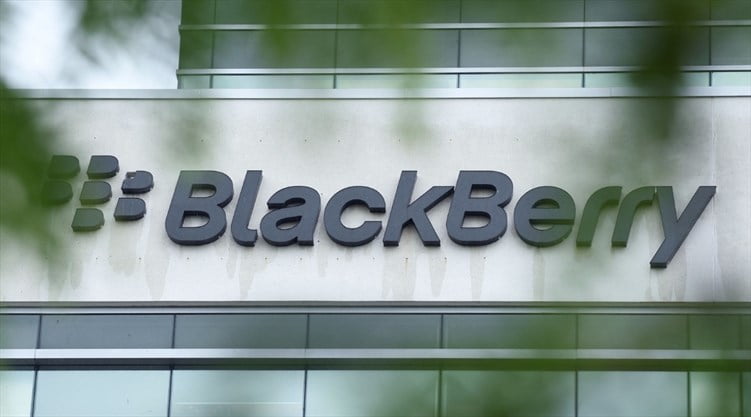

BlackBerry no longer is the exclusive supplier of smartphones to the federal government. – Record staff file photo
WATERLOO — Nobody should be surprised that Samsung Electronics will now supply federal government employees with smartphones, breaking BlackBerry’s grip on that lucrative account, says technology analyst Carmi Levy.
“The clock started ticking as soon as BlackBerry got out of the handset business,” Levy said Monday in a phone interview from London, Ont., where he is based.
Levy was reacting to a report that the federal government’s mammoth IT department, known as Shared Services Canada, will begin offering alternatives to BlackBerry smartphones to federal employees over the next 18 months. The first alternative approved for use by federal employees is an Android-based phone from Samsung.
BlackBerry’s vaunted security, based on elliptic curve technology, has never been hacked and long gave the Waterloo-based company a competitive advantage among government clients that insisted on secure, mobile communications.
But following two years of work, Samsung’s Knox security platform was able to satisfy Ottawa’s security demands.
“It gives Samsung an enterprise-class security capability,” said Levy.
“There is no reason to believe that a corporate road warrior using a Knox-equipped Samsung device is any less secure than someone who is using a legacy BlackBerry,” he said.
Even as Ottawa moves to provide Samsung smartphones to federal employees, BlackBerry technology will continue to play an important role. The federal government will continue to use BlackBerry email servers and other BlackBerry mobile device management solutions as back-end infrastructure for the Samsung phones.
“That’s the interesting thing about BlackBerry as a company. Their BES Servers remain a critical component of organizational, in this case government-messaging, infrastructure,” said Levy.
The Waterloo company’s server network remains highly regarded technology among customers who want strict security for their texts and emails, he said.
“They just won’t be able to sell you the handset you put back in your pocket when you are done,” said Levy.
The last BlackBerry that passed all of Ottawa’s security needs was the Leap, a touch-screen smartphone launched in 2015. The BlackBerry Classic, a keyboard smartphone released in 2014, also met all of Ottawa’s security demands. But neither device is in production today.
“The truth of the matter is you can’t buy a legacy BlackBerry anymore so you need something that runs on Android,” said Levy.
Samsung’s move underscores the transformation of BlackBerry from a smartphone maker into a software and services company focused on the security of mobile communications. Instead of designing and building its own smartphones, BlackBerry licenses its software for use in phones made by others, such as the Chinese company TCL Communication.
“The sad reality for BlackBerry the company is everyone, including Canadian government employees, wants hardware they can’t offer. They are out of the business,” said Levy.
The programmers, developers and support personnel for BlackBerry smartphones was becoming increasingly difficult to find for government employees, he said.
“The world has moved on, the Canadian government needs to move on as well, and that’s exactly what they are doing here,” said Levy. “So it makes sense to move into Android. It will make it easier to find those resources.”
[“Source-therecord”]

